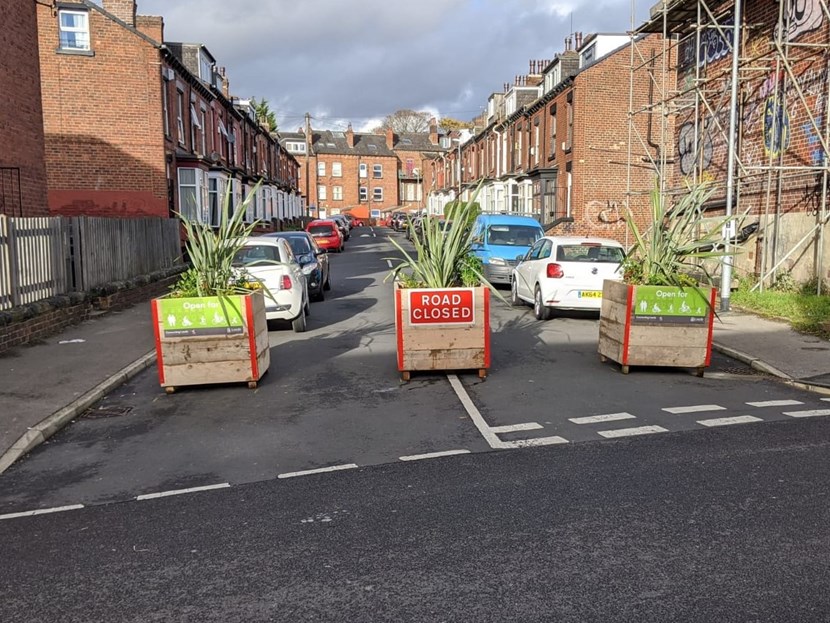Leeds City Council began its first ‘low traffic neighbourhood’ (LTN) trials this month in Hyde Park and Chapeltown following funding from the Department of Transport. The implementation of LTN trials, also known as ‘active travel neighbourhoods’, has meant that large planters have been placed at the entrances of roads to prevent vehicles from accessing them. These trials are set to last at least six months, depending on the air quality changes and public responses which Leeds City Council will evaluate throughout.
Such a scheme is not exclusive to Leeds, with LTN trials being rolled out all over the UK. Just this week it was declared that Guy’s and St Thomas’ Charitable Trust will provide £250,000 to Southwark council to implement LTN trials in the area.
The motivations behind the LTN trials are clear: in a time of climate emergency, we need to change the way we live in order to create a sustainable society and future. Alongside this, we need to improve our air quality. It has been reported that 60 per cent of people in England are living in areas where there are toxic levels of air pollution, which is particularly harmful to children and those over 65.
As Leeds City Council’s executive member for climate change, transport and sustainable development, Councillor Lisa Mulherin stated: “our goal for active travel neighbourhoods is to make our residential areas safer and deter rat-running through them, creating local streets that are safer, greener and healthier for the people of all ages that live there to walk, wheel, cycle and play.”
A recent success for those advocating for low traffic neighbourhoods comes following a study published in the Guardian, which found that “low traffic schemes benefit everyone, not just better-off.” It is a common fear that environmental action and protest ignore unjust inequality in an attempt to increase sustainability. However, this study focused on London-based LTN trials provides optimism that low traffic neighbourhoods are not disproportionately targeting areas where income is lower.
However, in September, Conservative-led Wandsworth Council suspended its LTN trials following a review which stated that preventing vehicles from certain roads is “not wanted”, and that inadequate consultation to road users has caused anger and discontent.
The problem with this response comes from Wandsworth Council conflating a lack of communication about the changes following the scheme (which is primarily the responsibility of the council) with the success of the scheme. Climate emergencies cannot be ignored. We need to end the disparity between the progressive, sustainable discourse that is spouted by public bodies and the lack of versatility that is given in response to active measures to tackle environmental issues. Addressing the climate crisis requires change, which means being willing to adapt; at the very least, this includes becoming familiar with new routes when travelling in vehicles.
Furthermore, Wandsworth Council and other critics ignore the fact that once we have become accustomed to low traffic neighbourhoods, we will benefit from improved air quality in residential areas, and children will be able to safely play in the roads. This is particularly important as increasing the building of blocks of flats means that more and more children will not have a garden to play in.
In Newcastle, which saw five bridges being closed to vehicles in LTN trials, the council has reported that the number of daily journeys taken on foot and by bike has increased and that people seem to be responding positively to the changes.
More important issues mean ensuring that access is not limited to emergency vehicles or those with disabilities, which councils will likely investigate when making evaluations into low traffic neighbourhoods.
But, for now, low traffic neighbourhoods seem to be a good start to the large changes that society must make in order to become more sustainable and environmentally friendly.
Jess Tait
Image source: Leeds.gov.uk

